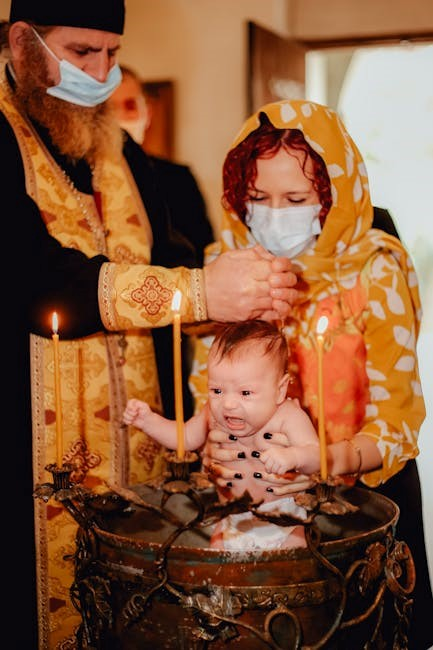The Litany of the Most Blessed Sacrament is a powerful prayer expressing deep reverence for the Eucharist, written by St. Peter Julian Eymard. It seeks mercy, grace, and blessings, emphasizing the sacrament’s mystery and significance in Christian life, ideal for both personal and communal devotion.
Overview of the Litany
The Litany of the Most Blessed Sacrament is a structured prayer composed of invocations and supplications, emphasizing Eucharistic devotion. It begins with petitions for mercy, followed by acclamations of faith in the Real Presence of Christ in the Sacrament. The litany highlights the Eucharist as the source of life, sacrifice, and divine love, while seeking deliverance from sin and indifference. Its rhythmic and repetitive format fosters a sense of communal worship, making it a powerful tool for deepening reverence and spiritual connection to the Blessed Sacrament.
Historical Background and Purpose
The Litany of the Most Blessed Sacrament was composed by St. Peter Julian Eymard, founder of the Blessed Sacrament Fathers, in the 19th century. Its purpose is to honor the Eucharist, fostering devotion and reverence. The litany emphasizes the sacrament’s role as a source of grace and mercy, while addressing the spiritual needs of believers. Its ecclesiastical approval with Nihil Obstat and Imprimatur ensures its liturgical validity, making it a cherished prayer for both personal and communal Eucharistic adoration, reflecting the Church’s deep veneration for the Real Presence of Christ.

The Structure of the Litany
The Litany of the Most Blessed Sacrament follows a structured format, incorporating invocations, antiphons, and prayers, with repetitive pleas for mercy, suitable for both personal and communal adoration.
Key Elements and Invocations
The Litany of the Most Blessed Sacrament features invocations that honor the Eucharist as the “Living Bread” and “Hidden God and Savior,” emphasizing its divine presence. It includes pleas for mercy, such as “Have mercy on us,” and acknowledges the sacrament’s role as “Medicine of immortality” and “Bond of love.” The litany also invokes deliverance from sin and indifference, while praising the Eucharist as a “supersubstantial Bread” and “Memorial of God’s wonders.” These elements reflect a deep reverence for the sacrament, urging believers to seek spiritual renewal and grace through its mystery.
Prayers for Mercy and Deliverance
The Litany of the Most Blessed Sacrament includes heartfelt prayers seeking divine mercy and deliverance. Invocations such as “Deliver us, O Lord, from the unworthy reception of Thy Body and Blood” highlight the desire for purity and grace; The litany also pleads for liberation from sinful tendencies, asking for protection from “passions of the flesh” and “every occasion of sin.” These prayers emphasize the sacrament’s role in spiritual healing and renewal, urging believers to seek forgiveness and strength through the Eucharist’s transformative power.

Theological Significance of the Eucharist
The Eucharist, as the Source and Summit of Christian life, embodies the real presence of Christ, uniting believers with God and His Church, fulfilling humanity’s deepest longing for communion and salvation.
The Eucharist as the Source and Summit of Christian Life
The Eucharist is the pinnacle of Christian worship, embodying the real presence of Christ. It is the source of spiritual nourishment, uniting believers with God and His Church, fostering unity and love. As the summit, it represents the highest form of worship, where Christ is adored, offered, and received. The Eucharist strengthens faith, deepens reverence, and transforms lives, making it central to Christian devotion and the heartbeat of the Church’s mission. Through it, believers experience divine grace, unity, and a foretaste of eternal life, fulfilling humanity’s deepest longing for communion with God.
The Sacrament of the Altar and Its Mystery
The Sacrament of the Altar is a profound mystery where bread and wine become Christ’s Body and Blood through transubstantiation. Instituted by Christ at the Last Supper, it is the Divine Sacrifice where His Passion is re-presented, uniting heaven and earth. The Eucharist is the real presence of Christ, offering spiritual nourishment and forgiveness. It is the heart of Christian worship, a mystery of faith that deepens devotion and fosters unity among believers. The Sacrament of the Altar invites reverence, adoration, and communion with the Divine, embodying the Church’s spiritual life and eternal salvation.

Devotional Practices Associated with the Litany
Devotional practices include Eucharistic adoration, personal reflection, and communal prayer, fostering a deeper connection with Christ and seeking His mercy and grace in reverence.
Eucharistic Adoration and Its Importance
Eucharistic adoration is a devotional practice that complements the Litany, fostering deep reverence and intimacy with Christ. It involves prayerful time before the Blessed Sacrament, acknowledging His real presence. This practice deepens faith, inspires conversion, and nurtures a spirit of gratitude. Adoration provides spiritual graces, such as peace, healing, and strength, drawing believers closer to God. Regular adoration enhances devotion, encouraging a life centered on the Eucharist and its transformative power.
Perpetual Adoration and Its Spiritual Benefits
Perpetual adoration, a continuous prayer before the Blessed Sacrament, deepens faith and fosters conversion. It brings peace, healing, and spiritual renewal, helping believers grow closer to Christ. This devotion strengthens the soul, providing solace in times of struggle. By participating, individuals experience a profound connection to God, fostering a life of prayer and sacrifice. Perpetual adoration also unites communities, creating a bond of shared worship and intercession. Its graces enrich both personal and communal spiritual journeys, drawing all to the heart of the Eucharist.
Spiritual Benefits of Reciting the Litany
Reciting the Litany of the Most Blessed Sacrament deepens faith, fosters devotion, and seeks divine mercy. It helps believers grow in reverence and gratitude for the Eucharist.
Deepening Reverence for the Blessed Sacrament
Reciting the Litany of the Most Blessed Sacrament fosters profound reverence for the Eucharist, emphasizing its divine presence and mystery. By invoking mercy and grace, the prayer deepens devotion, helping believers recognize the sacrament’s transformative power. It encourages a spirit of humility and gratitude, fostering a deeper connection to Christ’s sacrifice. Regular recitation cultivates awe for the Blessed Sacrament, inspiring worship and spiritual growth, while reinforcing the Eucharist’s central role in Christian life and worship.
Seeking Mercy and Grace Through the Litany
The Litany of the Most Blessed Sacrament is a heartfelt plea for divine mercy and grace, offering a pathway to spiritual renewal. Through its invocations, believers seek deliverance from sin, indifference, and worldly distractions, while imploring God’s forgiveness and protection. The litany’s prayers emphasize the Eucharist’s role in granting spiritual strength and fostering a deeper connection to Christ’s sacrifice. By reciting it, the faithful express humility, acknowledge their shortcomings, and ask for the grace to live in reverence and devotion to the Blessed Sacrament, drawing closer to God’s boundless love and mercy.

Cultural and Liturgical Impact
The Litany of the Most Blessed Sacrament, ecclesiastically approved, deeply influences Catholic worship, uniting global devotion and fostering Eucharistic reverence, enriching liturgical practices worldwide.
The Role of the Litany in Catholic Worship
The Litany of the Most Blessed Sacrament holds a significant role in Catholic worship, serving as a devotional tool fostering Eucharistic adoration and unity among the faithful. Its ecclesiastical approval ensures its liturgical suitability, making it a popular choice for both personal and communal prayer. By invoking mercy and grace, it strengthens devotion to the Eucharist, aligning with the Church’s emphasis on the sacrament’s centrality. This litany enriches worship experiences, offering a structured yet heartfelt way to honor the Blessed Sacrament and deepen spiritual connection.
Its Influence on Eucharistic Devotions Worldwide
The Litany of the Most Blessed Sacrament has profoundly shaped Eucharistic devotions globally, inspiring countless Catholics to deepen their reverence for the Eucharist. Its widespread use in adoration chapels and parishes has fostered a universal devotion, transcending cultural boundaries. The litany’s structured yet heartfelt invocations have been adapted into various languages and practices, making it a unifying prayer for the faithful worldwide. Its emphasis on mercy and grace resonates deeply, encouraging perpetual adoration and spiritual growth. This litany remains a cornerstone of Eucharistic spirituality, nurturing devotion and fostering a global community united in worship of the Blessed Sacrament.
Practical Guidance for Using the Litany
Incorporate the Litany into daily prayer for spiritual growth, using it during Eucharistic adoration or before Mass. Reflect on each invocation to deepen your devotion and faith.
How to Incorporate the Litany into Daily Prayer
Begin by reciting the Litany of the Most Blessed Sacrament during moments of quiet reflection or before receiving Holy Communion. Reflect on each invocation to deepen your understanding of the Eucharist’s mystery. Use the litany as a meditation tool, pausing to contemplate its rich theological significance. Incorporate it into your morning or evening prayers, or pray it during Eucharistic adoration. For greater spiritual impact, pray the litany with others, fostering a communal devotion to the Blessed Sacrament. Regular use will enhance your reverence and draw you closer to Christ’s presence in the Eucharist.
Using the Litany in Group Worship and Adoration
The Litany of the Most Blessed Sacrament is a powerful tool for communal devotion, fostering unity and reverence among participants. It can be recited aloud during Eucharistic adoration, parish prayer services, or special liturgical events. Encourage Congregants to pray the litany together, reflecting on its invocations to deepen their collective devotion. Distribute prayer cards or display the text for all to follow, ensuring active participation. Incorporating the litany into group worship strengthens the community’s bond and heightens their spiritual connection to the Blessed Sacrament, drawing all closer to Christ’s divine presence.
The Litany of the Most Blessed Sacrament remains a timeless devotion, guiding believers to profound reverence and spiritual renewal through its beautiful invocations and prayers.
The Enduring Relevance of the Litany
The Litany of the Most Blessed Sacrament remains a vital devotion, offering timeless reflections on the Eucharist’s mystery. Its structure, invoking mercy and grace, resonates deeply with modern spirituality, fostering devotion and reverence. By addressing contemporary spiritual needs, it continues to guide believers in seeking a closer union with Christ. Its enduring relevance lies in its ability to inspire faith, comfort, and transformation, making it a cherished prayer for generations of Catholics seeking spiritual renewal and a deeper connection to the Sacred Heart of Jesus in the Eucharist.
Final Reflections on the Blessed Sacrament
The Blessed Sacrament, as reflected in the Litany, is a profound gift of Christ’s presence, offering spiritual nourishment and divine love. It calls believers to reverence, gratitude, and deeper union with God. Through the Eucharist, Christians encounter the living Lord, who strengthens faith and transforms hearts. The Litany serves as a heartfelt prayer, inviting believers to seek mercy, grace, and intimacy with Christ. In the Sacrament, we find the source of eternal life, a mystery that inspires awe, devotion, and a lifelong commitment to following Christ, the Bread of Life and the ultimate source of hope and salvation.